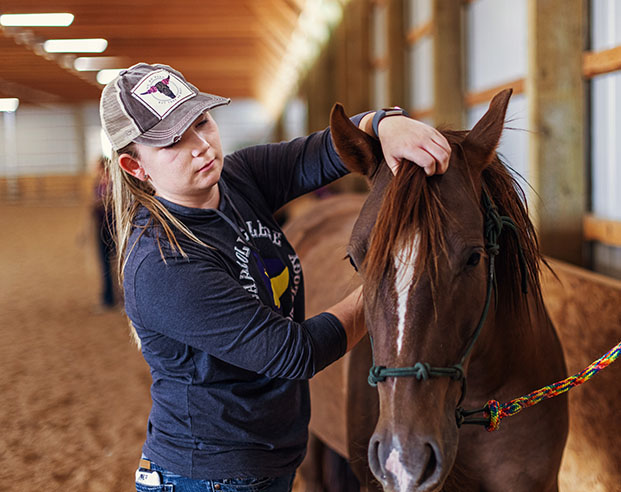See where your anthrozoology degree can lead.
As a graduate of Carroll’s anthrozoology program—the first undergraduate anthrozoology major in the nation—you’ll be positioned for a leadership role in this emerging discipline. You will have opportunities to shape the field and determine where the next discoveries of human and animal interactions will lead.
If you are an aspiring veterinarian, you’ll be interested to know that 86% of anthrozoology students who have applied to veterinary school have been accepted. In comparison, the average acceptance rate to veterinary school is 12.5% nationally.
Career opportunities with an anthrozoology degree
You could:
- teach in Anthrozoology or Animal Behavior
- work at an animal shelter or sanctuary
- work at a veterinarian’s office
- become an animal behaviorist
- work in humane or environmental education
- get a job at an animal protection or environmental organization
- work for a government agency with a connection to animals, such as the USDA, the US Fisheries and Wildlife Service, or other agencies
- become a naturalist
- be an animal trainer
- work at a zoo or aquarium, either with animals, or in another capacity such as outreach, administration, or fundraising
- be an animal nutritionist
- do animal-assisted therapy
- work in counseling, focusing on subjects like pet loss or the human/animal violence connection
- be a lab animal technician
- be an animal welfare inspector for the government
- work with support animals or the people who need them
- be a wildlife rehabilitator
- provide therapy for animals
- do humane law enforcement
- be an animal photographer

